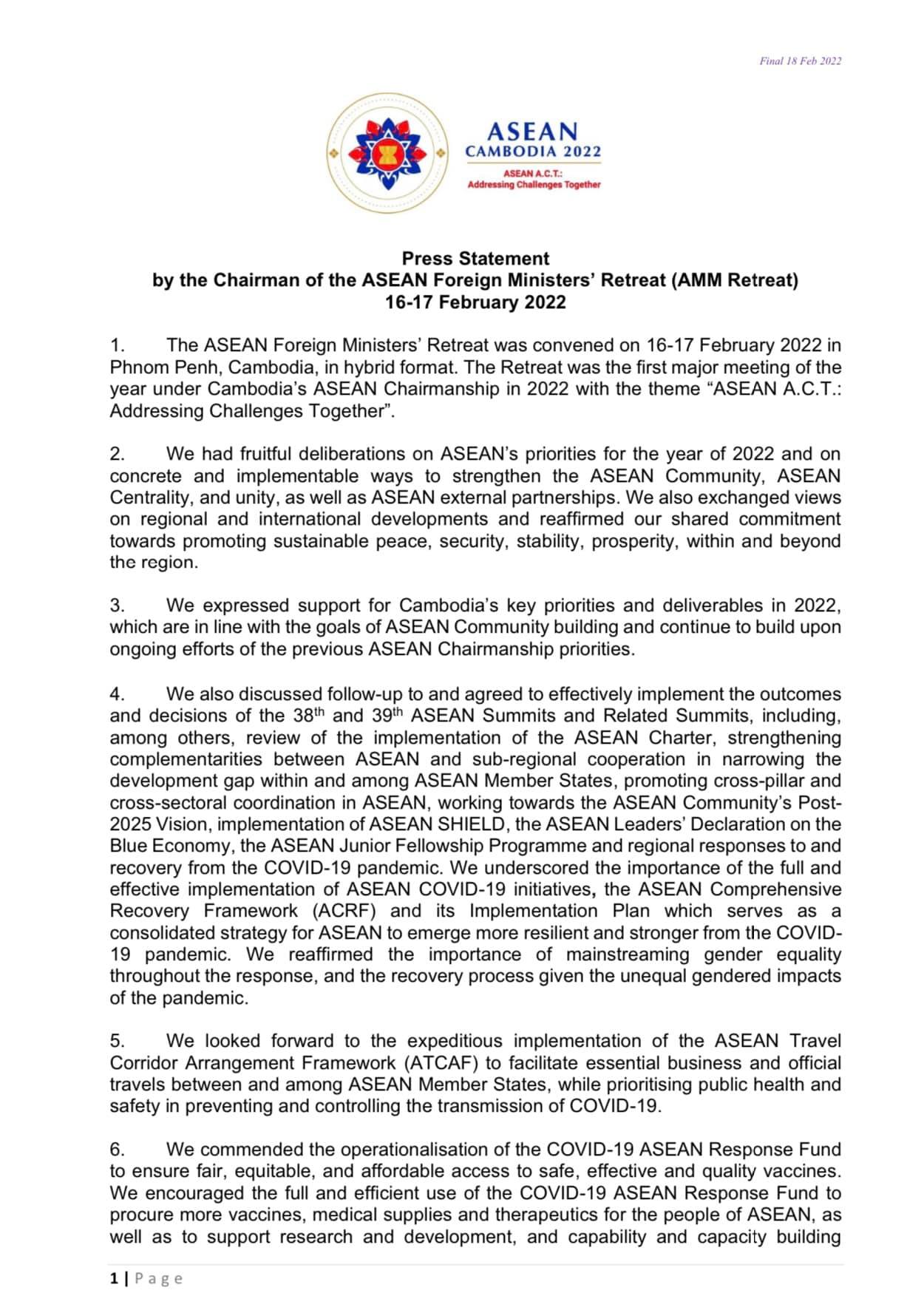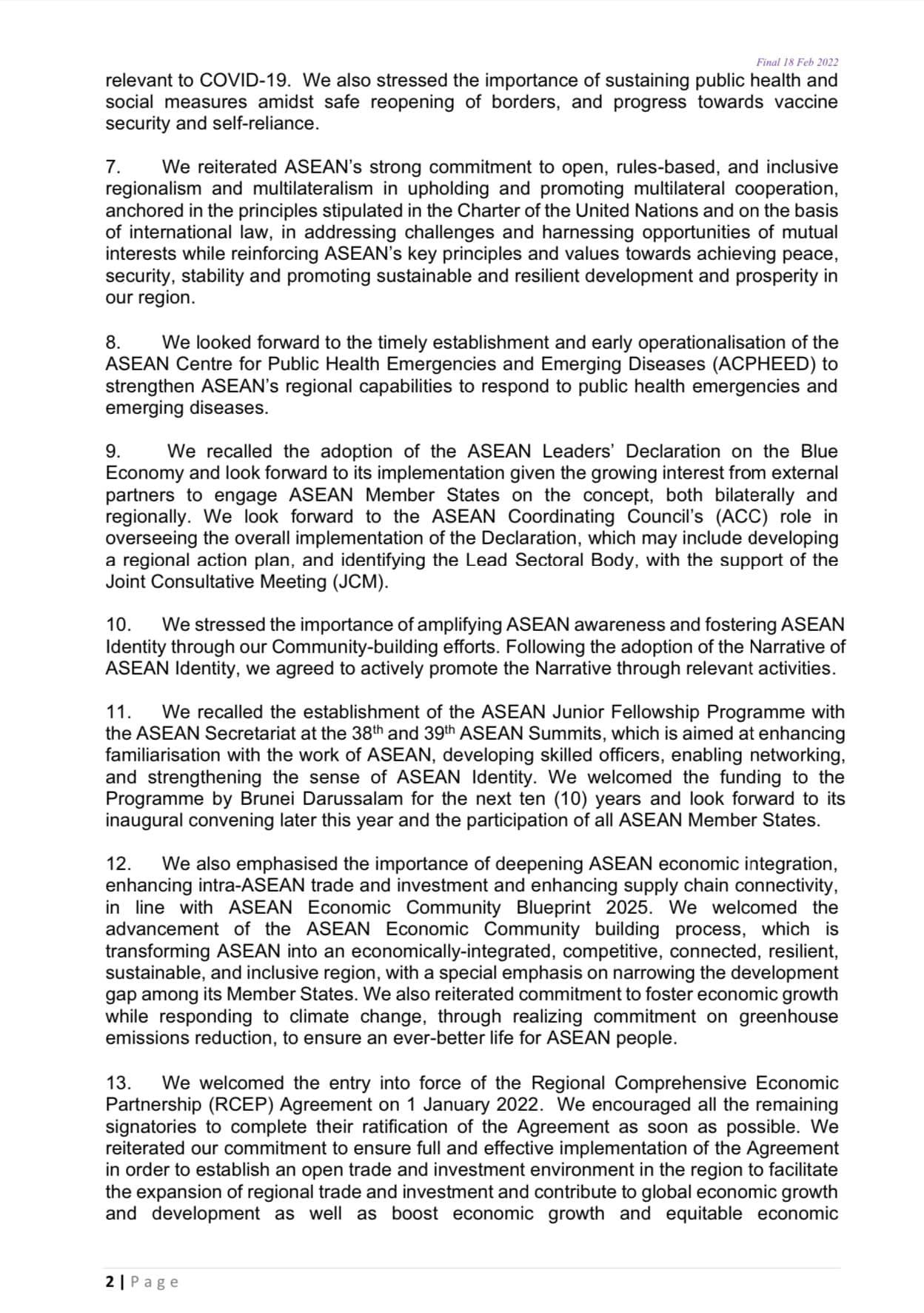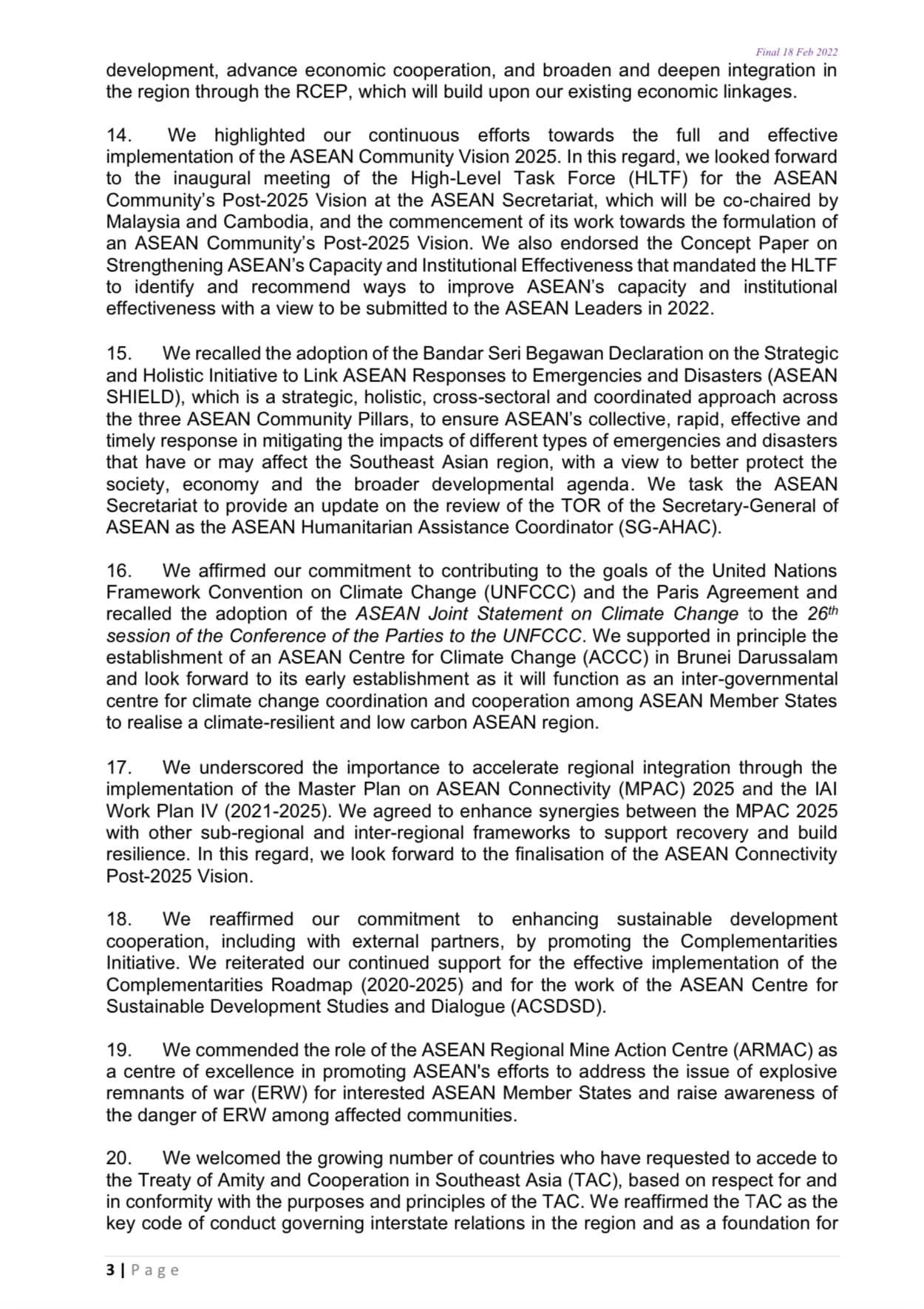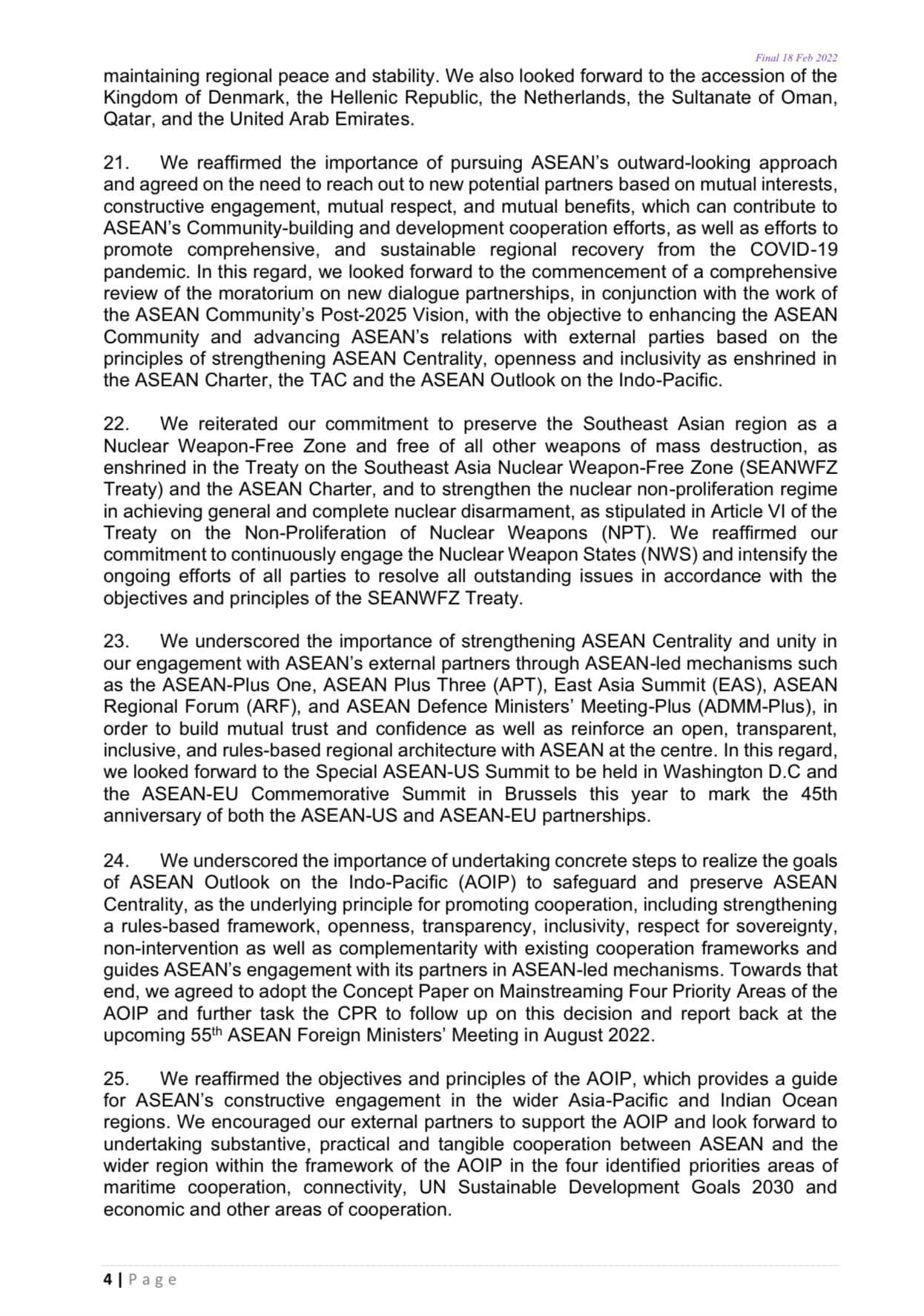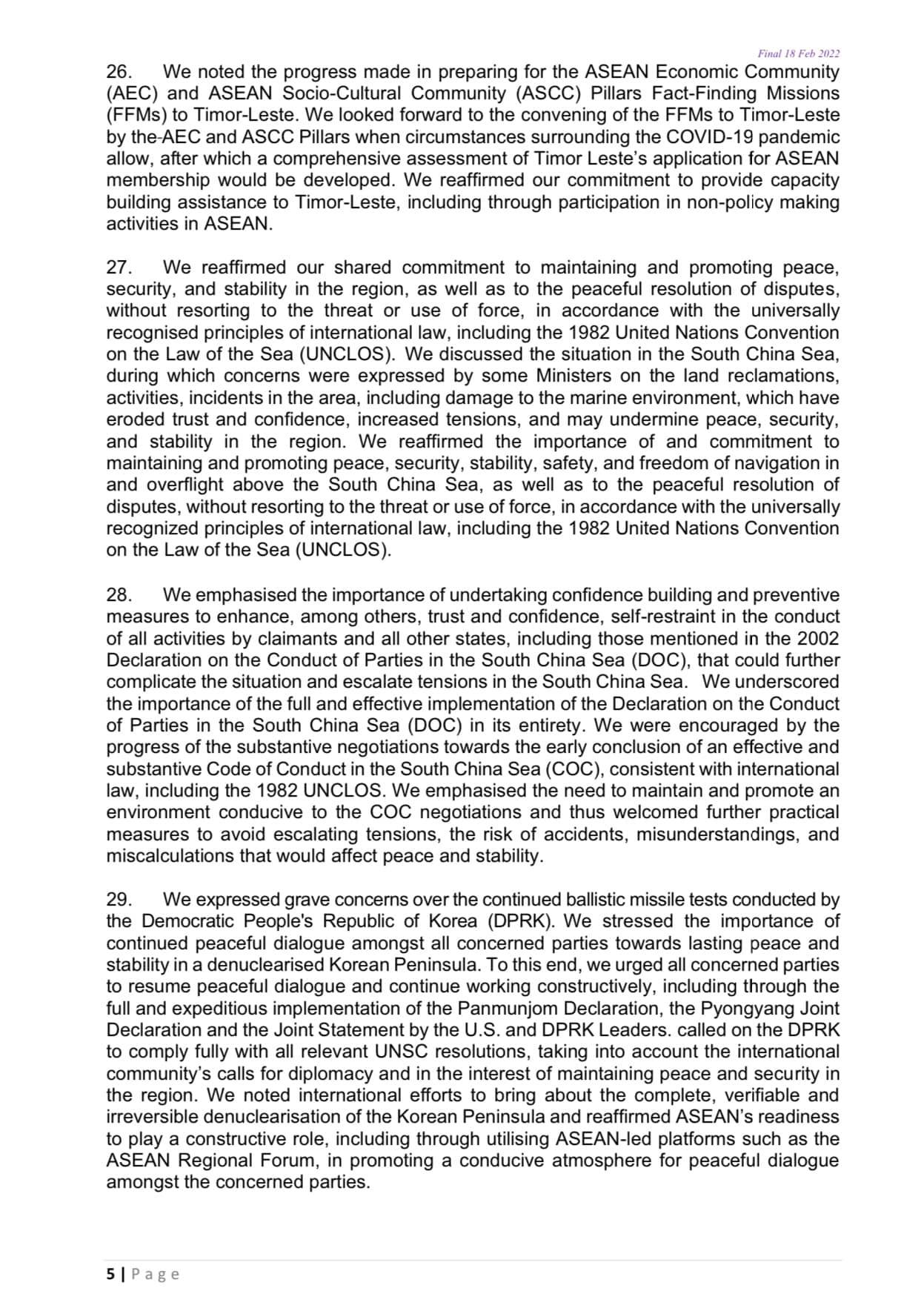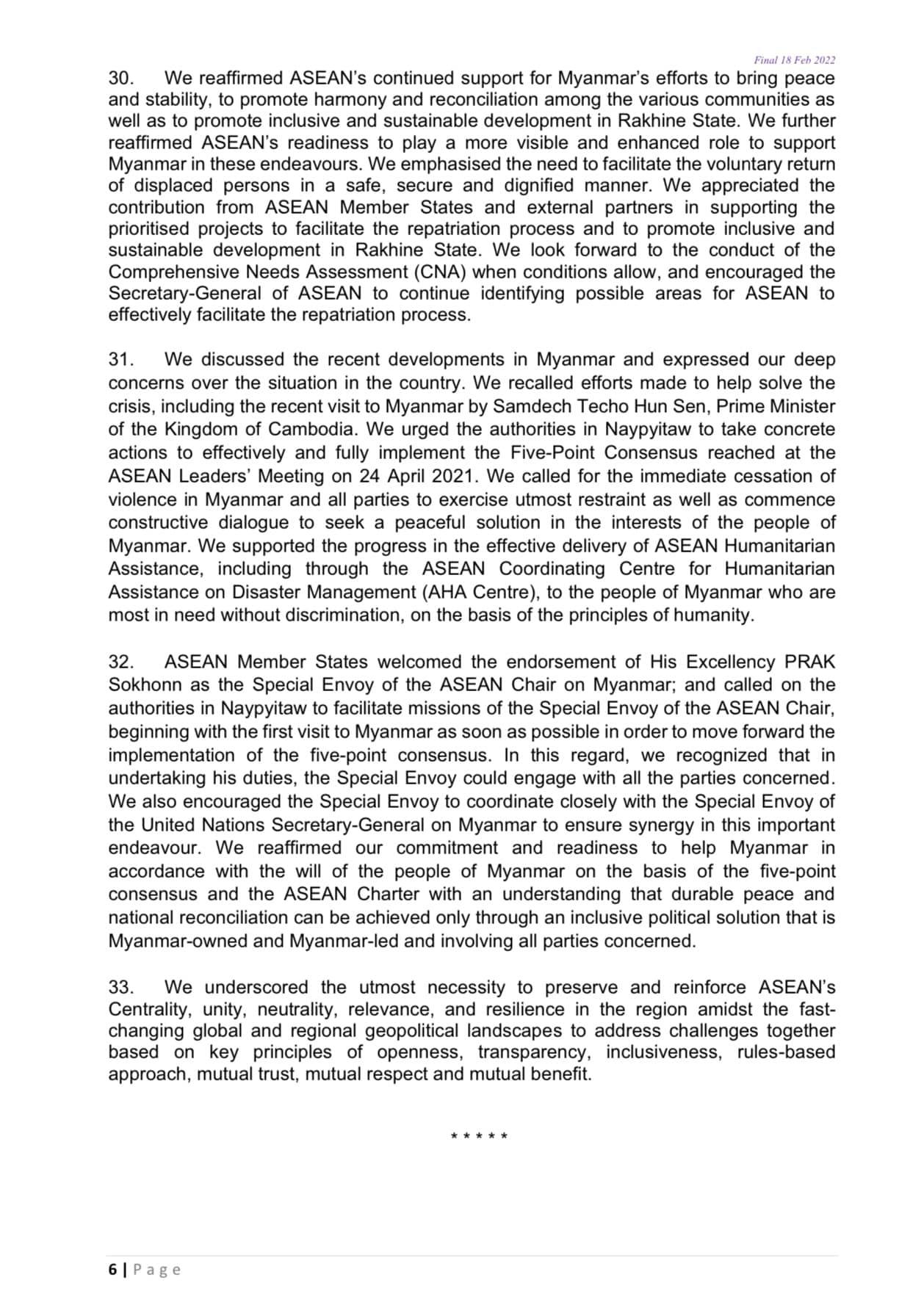PHNOM PENH: The ASEAN Foreign Ministers issued a joint statement after the 2022 ASEAN Foreign Ministers' Meeting on Friday, 18 February, with 33 points of joint commitment. Of the 33 commitments, two focus on the South China Sea, with some ministers "Raising concerns over control activities, regional conflicts and destruction of marine resources."
The 27th and 28th points in the joint-statement say that the South China Sea issue has undermined confidence, caused tensions and could jeopardize regional peace and stability. The ASEAN Foreign Ministers reaffirmed their commitment to maintaining and promoting peace in the region by finding a peaceful solution without the use of threats or force.
The nine Foreign Ministers also stressed the importance of implementing confidence-building and safeguarding measures while recalling the 2002 Declaration on the Conduct of Parties in the South China Sea and support for the South China Sea Code of Conduct negotiations.
Article 28 of the statement says, "We emphasize the need to maintain and promote a conducive environment for COC negotiations, and therefore welcome further practical measures to avoid escalating tensions, risks, danger, misunderstanding and anything that will affect peace and stability."
Previously in 2002, while Cambodia was chairing the ASEAN-China Summit, it signed the "Declaration on the Conduct of Parties in the South China Sea", which set the stage for a formal code of conduct to be followed. The terms of the declaration were established by the signatory countries only, promising to resolve differences peacefully and "exercise self-restraint in actions that would complicate or escalate the conflict and jeopardize peace and stability."
The 2022 ASEAN Chair, Prime Minister Hun Sen, has announced a three-point solution to the South China Sea issue, which includes the implementation of the Declaration on the Conduct of Parties in the South China Sea, the facilitation of ASEAN-China dialogue, and the implementation of the South China Sea Code of Conduct. However, the Prime Minister has also told the international community not to blame Cambodia if a solution cannot be formed this year alone, because no issue in the South China Sea has been resolved by any ASEAN Chair thus far. He further requested members of the international community to not heavily criticize Cambodia without evaluating the implementation efforts and action taken first.
The South China Sea dispute escalated during 2013, when China began island-building in the Spratlys and Paracel Islands. Five ASEAN countries – the Philippines, Brunei, Indonesia, Malaysia and Vietnam – are locked in a dispute with China over maritime territorial claims and trade issues of great value in the sea.
